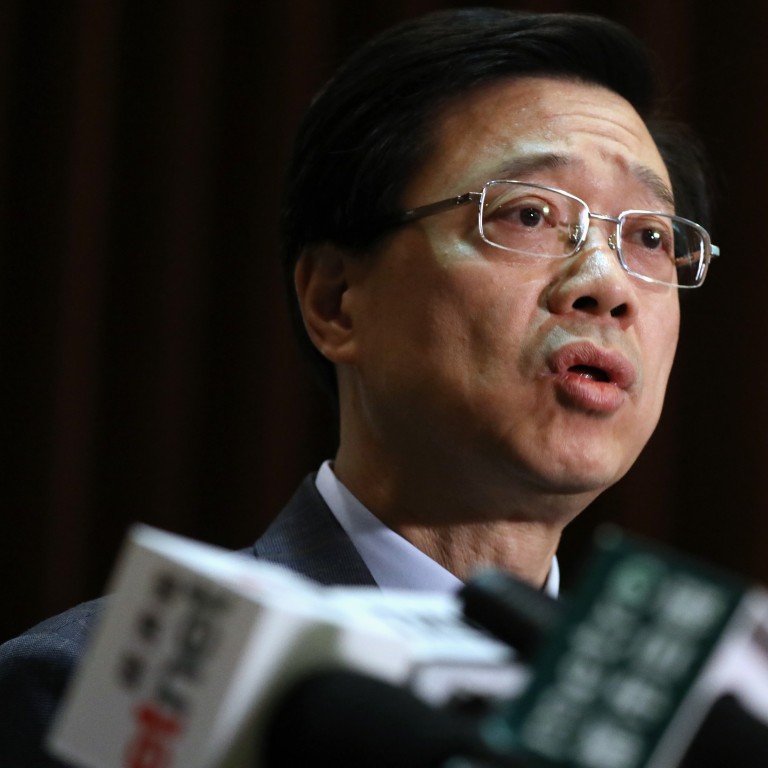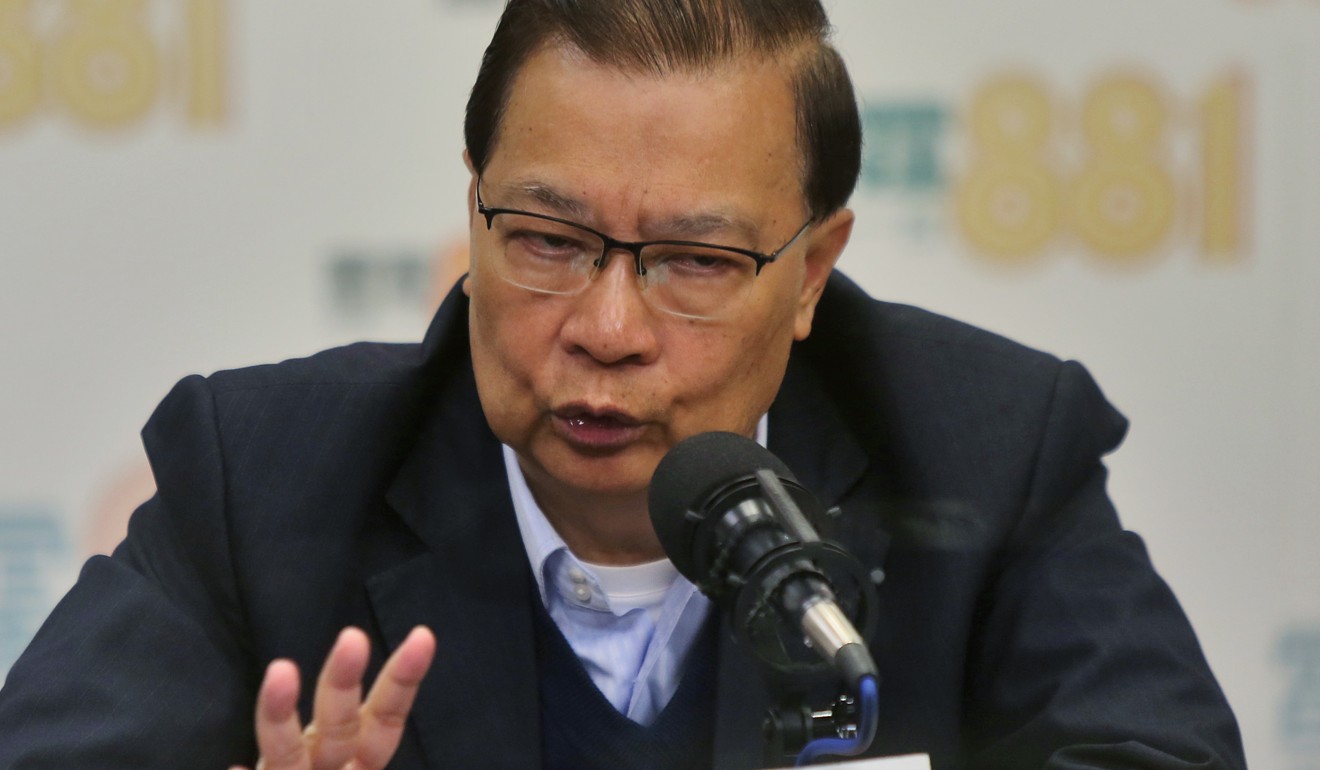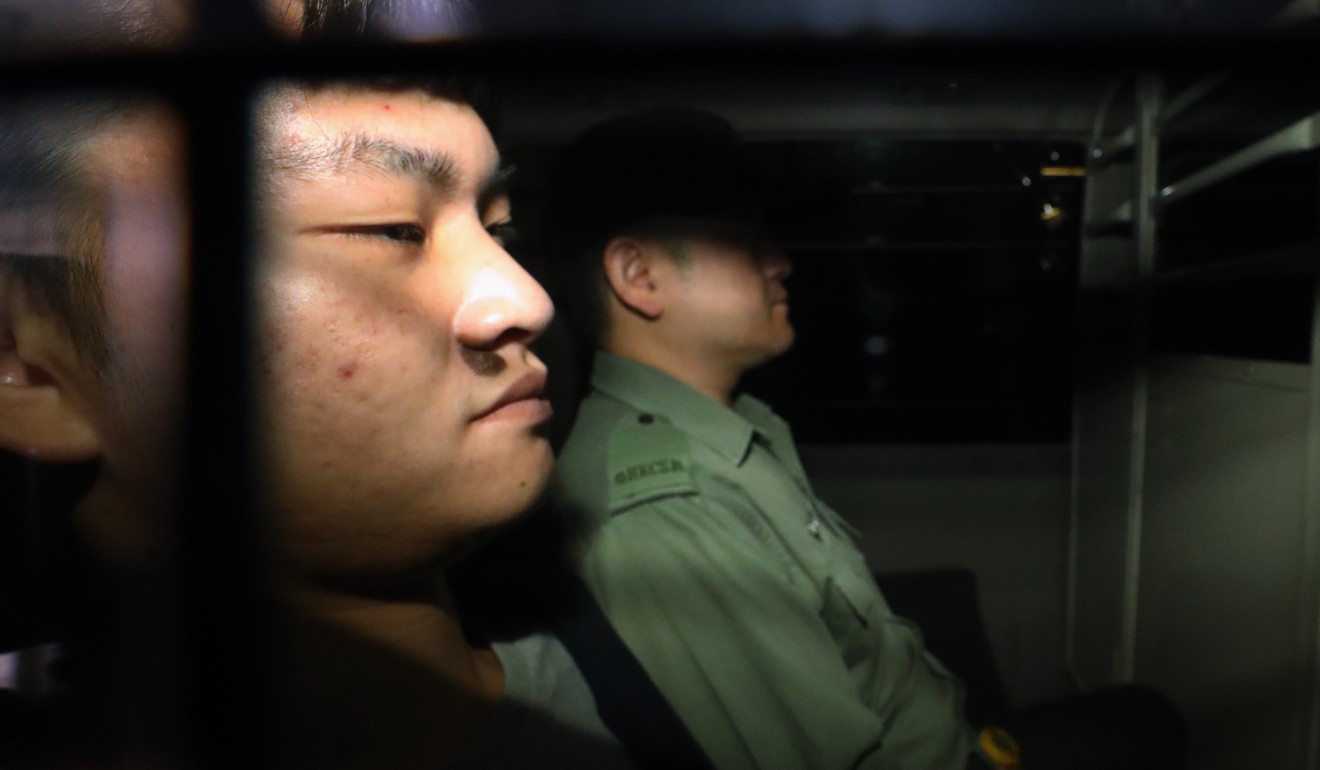
Hong Kong government to take drastic step in fast-tracking controversial fugitive bill
- Government says proposal will go straight to full council
- Attempts to start bills committee proceedings have been fraught, with one meeting descending into scuffles
The political storm over Hong Kong’s controversial extradition bill intensified on Monday as the government announced it would be fast-tracked through the legislature, bypassing the usual scrutiny committee.
Secretary for Security John Lee Ka-chiu said the government had written to the Legislative Council’s House Committee, asking for a second reading of the amended law to resume at a meeting of the full council on June 12.
The government expects to secure enough votes from its allies in the council to pass the bill, which would allow the transfer of fugitive criminal suspects from Hong Kong to jurisdictions with which it has no extradition deal, including mainland China.
Lee called it a “difficult decision” to skip vetting by the bills committee, which has not been able to start scrutinising the legislation because of a bitter dispute between opposition and pro-establishment lawmakers over who should chair it.
“The bills committee has lost its function to scrutinise the bill and I see no other way out in the current situation,” he said.
The minister noted that lawmakers from the two rival camps had failed to reach a consensus on how to end their deadlock since the government tabled the bill five weeks ago.
The drastic move came more than a week after a bills committee meeting descended into unprecedented chaos when the two camps clashed to gain control of the panel, and days after Beijing’s top representative in the city accused local and international critics of “ganging up” against China to undermine its sovereignty over Hong Kong.
The bill has also sparked strong concern from the business community and foreign governments led by the US and Britain, prompting a mass protest in the city last month over fears that Beijing could use the legislation to prosecute its critics.
Fugitive plan risks ‘shooting Hong Kong in the foot’, says American chamber
Chief Executive Carrie Lam Cheng Yuet-ngor, who has made the passage of the bill a matter of protecting her credibility and ability to govern effectively, was heckled by protesters while attending an anniversary event hosted by Chinese-language newspaper Ming Pao on Monday night.
One attendee held up a placard with the slogan “Retract the evil law” while she was speaking onstage.
Lam’s government has stressed the urgency of passing the bill to allow the transfer of a Hongkonger wanted in Taiwan for allegedly murdering his girlfriend. He has been jailed in the city on related money-laundering charges and could be released as early as October, giving him time to flee abroad.
The bills committee has lost its function to scrutinise the bill and I see no other way out in the current situation
Taiwan has made it clear that it will not seek the suspect’s return even if the bill is passed, citing risks to the rights of its citizens.
Lee dodged questions about it on Monday, only saying cross-strait negotiations would continue.
Opposition lawmakers condemned the government for fast-tracking the bill, while their pro-establishment colleagues also expressed regret over such a drastic departure from protocol.
The first reading of the bill was conducted on April 3, and its second reading was adjourned on the same day so a committee could be formed to scrutinise it in detail.

According to Legco’s rule book, an official in charge of a bill may resume its second reading after consulting the chairman of the House Committee, which is currently pro-government lawmaker Starry Lee Wai-king of the Democratic Alliance for the Betterment and Progress of Hong Kong.
Starry Lee said the matter would be discussed in a House Committee meeting on Friday.
Tabling the amended legislation directly before the full council would mean skipping the stage for officials and lawmakers to examine it clause by clause and make amendments.
It is also customary for a bills committee to hold two rounds of public hearings, which is highly unlikely at full council.
Council Front lawmaker Claudia Mo Man-ching said officials would now be able to get away with taking very little scrutiny.

“At the bills committee stage, we can confront officials and have proper question and answer sessions. But at full council, it’s a mere debate,” Mo said.
Civic Party legislator Dennis Kwok questioned if Lam had bowed to pressure from Beijing.
“After the liaison office showed its support, Lam has now bypassed the bills committee and disrespected all the procedures and tradition; she does not deserve to be the chief executive,” Kwok said.
The Civil Human Rights Front, an umbrella body of pro-democracy groups, said it would hold another mass rally against the bill on June 9.
From the pro-establishment side, New People’s Party chairwoman Regina Ip Lau Suk-yee expected the bill to be passed in less time than the 38 hours it took lawmakers to process another controversial bill, to apply mainland laws at the express rail terminus in West Kowloon, last year.
“It would have been better if we discussed it line by line, clause by clause at the bills committee,” Ip said, adding that the pan-democrats should reflect on their tactics.
Pro-business Liberal Party leader Felix Chung Kwok-pan, who opposes the bill, said he was disappointed, but it would at least end the stalemate in Legco.
“This has set a bad precedent in that any controversial bill might skip scrutiny,” Chung said. “But it’s for the government to face criticism.”
American Chamber of Commerce president Tara Joseph said the bill deserved due process and consideration, as Hong Kong’s global reputation was on the line.
“Rushing the bill through only serves to further fuel suspicion around the motivation behind its sudden introduction,” she said.
Tam, a member of the National People’s Congress Standing Committee, suggested the government could consider applying the law only to crimes punishable by a minimum of five to seven years in prison, instead of the proposed threshold of three years.
Additional reporting by Linda Lew


